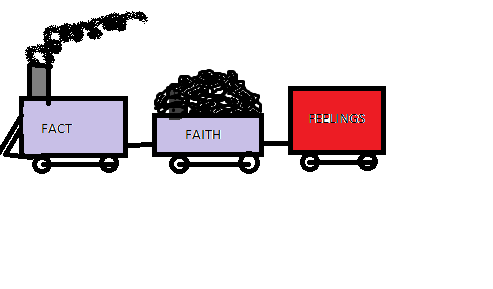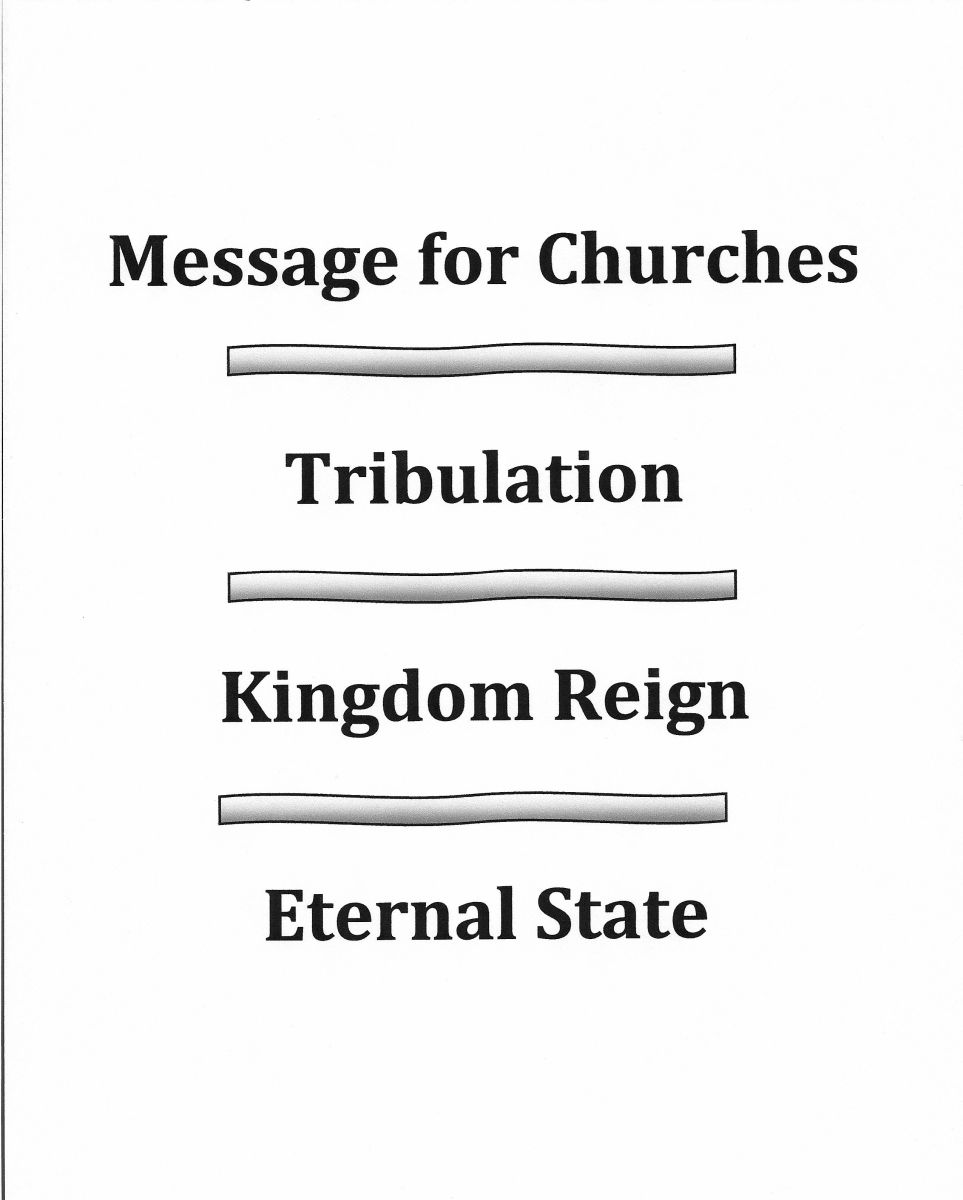Feelings - the much-maligned caboose

Deceitful above all things
Nowhere in any social group is the human heart more suspect and mistrusted than in the Christian culture. Those brought up in the church have heard from their youth, "The heart is deceitful above all things, and desperately wicked..." (Jer 16:9) and have been taught not to trust their heart but to subjugate it.
I believe this is a gross miscarriage of God's intent.
The passage in Jeremiah is obviously referring to the unregenerate heart - as did Jesus when He said that "from within, out of the heart of men, proceed evil thoughts, fornications, thefts, murders, .... All these evil things proceed from within, and defile the man." (Mark 7: 21-23). However, try as I might, I am unable to find any scripture that tells believers not to trust their hearts. In fact, God says in Ezekiel (36: 26) that He will remove the heart of stone and replace it with a heart of flesh, indicating that the unemotional heart is not acceptable and that His people must be able to feel, for His presence must be experienced in order to change us, and we experience God in the deepest recesses of our being, which will affect us emotionally!
Why do we mistrust our feelings so much? what is at the root of it? I have a few theories:
- ideas passed down from the Puritans and similar sects, who got their philosophies from certain Greek sects such as the Stoics;
- our own North American culture which values appearances above all else;
- dysfunctional family relationships; and
- results-based religious indoctrination.
Emotions are powerful things. They can carry us away to act impulsively and can sometimes (if unbridled) lead to unspeakable acts, as can be evidenced just by watching the news of late. There have always been people in the world who have - in an effort to get people to live in peace with one another - suggested that the suppression of emotion would be the best course of action. Among these were the Stoics of Ancient Greece, the monastics of the Dark Ages, and the Puritans, whose influence has spread throughout western Christendom.
Everyone wants to be happy, to feel love, joy, peace. Nobody wants to feel sad, angry, fearful. The problem with suppressing the unpleasant emotions is that the psyche doesn't differentiate between "good" emotions and "bad" ones. It figures if the goal is to suppress emotions, then it suppresses ALL emotions, including the "good" ones ... especially among males. What this has produced is a culture of unresponsive, cold and compassion-less people who wouldn't know what to do with a decent emotion if it came up and kissed them on the mouth.
Family roles have contributed to this situation. "Big boys don't cry" is a Western construct, largely purported by the archetypal picture of the rough and ready cowboy played by John Wayne or the mow-em-down stereotypes like Rambo and the Terminator. Yet I've seen more marriages break up, more children eventually need therapy, because of spouses and parents who were not emotionally available for them.
Not only were they not available, they were uncomfortable with anyone who expressed emotion and actively sabotaged any feeling they saw, and told us that we didn't feel what we felt. "I don't care if your sister sat on your train set and broke it! you don't hate your sister! you LOVE your sister! Now, get over here and give your sister a hug!" "If you keep crying, your face will freeze like that." When that didn't work, they threatened us: "You keep that up and I'll GIVE you something to cry about!" They passed on their own dysfunction to us. And, now WE are the ones who can't seem to get in touch with how we feel. We just don't know HOW.
The stereotypes we bought into ... are not true. You want a picture of people who are deeply in touch with themselves? Watch any news video from those in a Mediterranean or (non-English) European culture, and you see people unafraid to feel what they feel. It might offend our North American / Western inhibitions, but openly wailing and crying over the loss of a loved one (by any means, from violence to disease to old age) is an appropriate response.
The church has had a love-hate relationship with emotions for quite a while. At one time - back in the 1950s and 1960s, traveling evangelists used emotional responses to gain converts. The backlash against such emotional conversions was something to the effect that they weren't real if they were based on emotions. (I'm not convinced of that... but that may be another discussion for another time.)
However, it is the results-based model of Christendom that has done more to damage the role of emotions in the church. What I mean is that we are told that we SHOULD be doing this or that, we SHOULD have love and compassion for our fellow-man, we SHOULD be mature and well-adjusted, we SHOULD look a certain way and act a certain way and THINK a certain way. Yet there is nothing in that pile of expectations and goals that tells us HOW to get from where we are (which is usually with a whole lot of baggage we don't know what to do with) to where we are told we SHOULD be. We are told that we are to be happy, joyous even. Nevertheless, these things can't be pulled out of a hat; God doesn't wave a magic wand and make us into smiling, loving, perfect little soldiers of the Cross. Those in leadership see only what they WANT people to behave like; they have no clue how to show us the way. Following the rules, they expect herculean efforts from us to do the same. Without our emotions to guide us, (since we are told not to trust them) getting from point A to point B is a literal wasteland with no signposts. It's no wonder so many of us suffer from clinical depression.
CAN we trust our hearts?

The Caboose's Role
When I was a child, a Sunday School teacher drew something similar to the above diagram on the chalkboard in order to teach us that we don't rely on our feelings, but on the Word of God, that we put our faith (symbolized by the coal car) into the Fact (the Word of God) and that our feelings would follow along behind.
Interesting analogy. To a certain point, perhaps it is true. Yet what we took from that lesson was that feelings were unimportant, that they were not to be trusted at any time, and that we might as well forget about them.
I did a little research, after I got into therapy and started to heal from all of those dysfunctional attitudes with which I'd been indoctrinated, about the role of the caboose in the old steam-engine trains of the past, on which the above drawing is based.
What I found out astounded me. The caboose (symbolizing our feelings, remember) was, in fact, an important, a VITAL part of the train, and the train could not function without it!
Here are all the purposes that the caboose served:
- It was the living quarters for the train personnel. There was a stove, a few bunks, a chair and a table back there. There, the train workers nourished themselves (spiritual nourishment), interacted with each other (social relationships), and slept (resting is important too).
- It was the safety lookout for the cargo and any passengers. The engineer couldn't see whether it was safe to leave a station when taking on passengers and/or supplies; the caboose personnel were able to see the whole train and see if anything was in the way of the wheels, or if there were any of the cars that weren't latched correctly, and they could signal the engineer to stay put until the problem got fixed. In the same way, emotions alert us to our inner lives and give us clues as to what is going on around us. They send signals to us in order to help us look after ourselves and those around us.
- It stabilized the entire train and helped keep it on the tracks. The caboose had a hand-brake which the train workers released when the train was building up speed and when it was going uphill, and which they employed when the train was going downhill. This served to keep the cars from bumping into each other and derailing the train. It was vital to the safety of the train and everything and everyone on it. Emotions do the same for us; they are an internal "pressure relief valve" which allows us to release excess pressure and helps keep our inner life from self-destructing.
- It had a skylight. There was a window in the top hatch that allowed light in, through which the people inside could look, or in emergencies, escape and warn the rest of the personnel. It doesn't take a theologian to figure out that this "upward look" is the very thing that can rescue us when we need it, give us an early warning system and even an adrenaline boost to help in time of need.
Damaged Feelings
Our emotional center can become damaged, and wreak havoc in our lives for weeks, months, decades, or the rest of our lives. This usually happens because of :
- Trauma - either one-time or long-term abuse (verbal, physical, sexual, or psychological) or some sort of physical or psychological trauma (a serious accident, exposure to a traumatic event during which the person's life or safety, or the life or safety of a close friend or comrade, is put in danger. It would also include the tragic loss of a loved one at an early age without proper grief counseling);
- Someone else's neediness - this could also be considered abuse of a psychological nature. Usually, though, it arises in situations where the needs of one person in the family supersede the needs of everyone else at all cost. This is often the case when a parent is addicted to a substance or has a mental illness, or a family member is born with a physical or mental disability; and
- Religious indoctrination - extremely oppressive rules and regulations surrounding every thought, every motive, every life choice from how to dress to what life's calling to pursue. This would include the belief (as discussed above) that emotions are not to be trusted and the "negative" ones must be suppressed.
However, the emotions can be healed through a willingness to be honest and open to experiencing them, even the "bad" ones. While the following is by no means an exhaustive list, the suggestions below can be springboards to experiencing freedom from emotional bondage.
- Know what messages you have learned from your life experiences, messages that have stunted your emotional growth. Write them down on the left-hand-side of a sheet of paper and think about where they came from, what experiences brought you to that conclusion. Then beside them on the right side, write true messages that validate your feelings and your worth as a person. Be prepared to recite those statements to yourself often: several times a day if need be.
- I don't recommend very many self-help books to people, but I do highly recommend this one: "
A Codependent's Guide to the Twelve Steps" by Melody Beattie. A year of therapy based on this book was the life-raft that allowed me to accept myself the way I am, and to heal me from the inside out, to be able to come to a place of forgiveness, healing, and wholeness. For a uniquely Christian application, might I suggest you visit my blog and have a look at my e-book (on my "About Me" page).
- Find a place where you feel accepted. Acceptance is rich soil in which to grow emotionally. If your church is that place - you are doubly blessed!! For me, I had to look outside the church - in a Twelve-Step group - and there I found people who loved and accepted me for who I was and who realized that I was a work in progress. They never once judged me for not being at the finish line. Whatever that place is for you, find it and go there - frequently.
- Talk about how you feel. Even if you just write your feelings down in a journal, get them out and express them. Give yourself the space and time you need to get in touch with your emotions.
- Remember that emotions are transitory states designed to alert us to our inner lives. Any emotion sustained for a long period of time will drain our resources and some of them (such as resentment, anger, and fear) if held onto for years, can shorten our lives. Learn how to expose those emotions, find out why they are there, and express them in safe ways before releasing them. You don't need to hold onto them. They will aid you in locating areas of your life that need work, but be sure to work on them. :) That's why the emotions are there.
- And finally, enjoy the more pleasant feelings when they do eventually come. If you are the type of person to keep a journal, chronicle the feelings and give them a voice even if only to yourself. The happier experiences will come to your rescue when the not-so-happy ones intrude upon you.
And, from one fellow-traveler to another, all the best on your journey!
It's SO worth it.



